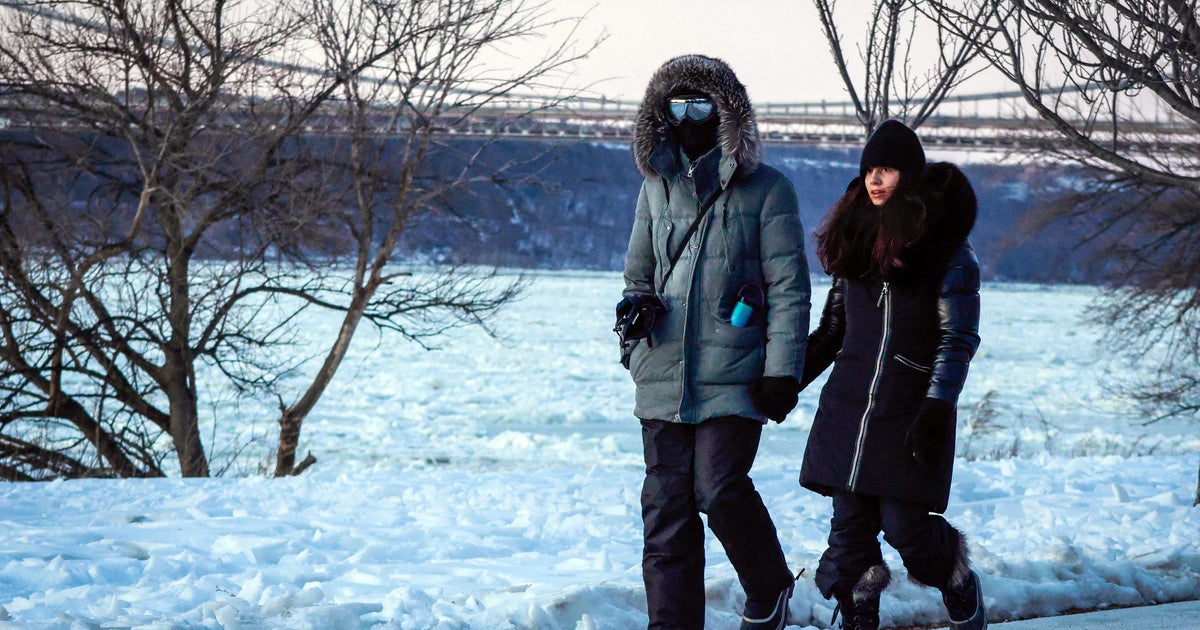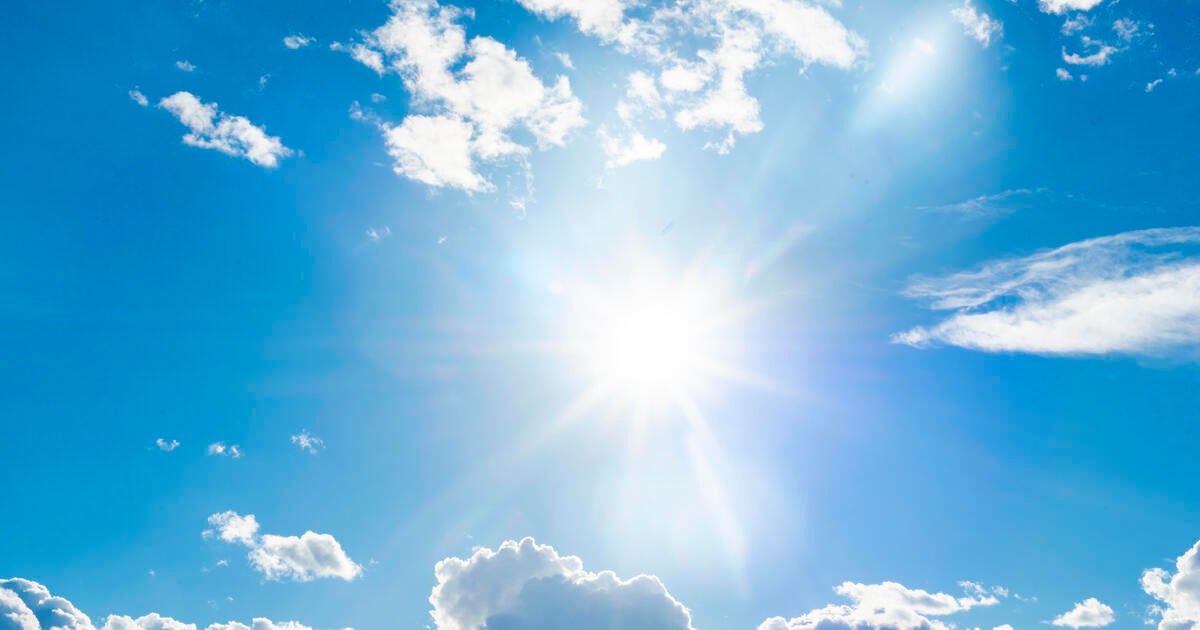Study: Climate Change Could Cause 26,000 More US Suicides By 2050
Follow CBSPHILLY Facebook | Twitter
PHILADELPHIA (CBS/CNN) — Researchers say the suicide rate of a given place may be linked to the changing of the seasons and its climate.
A new study sheds light on the possible mental health implications of climate change.
The study, published in the journal Nature Climate Change on Monday, suggests that when there are abnormally hot temperatures in a month there also tends to be higher suicide rates for that month, when compared with the suicide rate that occurs when the month has normal average temperatures.
Then, when using the data to make future predictions, the study suggests that suicide rates in the United States and Mexico could rise with each 1-degree Celsius increase in a month's average temperature.
Official: Pa. Woman Impaled In Chest By Beach Umbrella At Maryland Beach
"So we take a specific location and we take a specific month and we compare cooler versions of that month to hotter versions of that month and we ask, 'Are suicide rates different during those two months?' We indeed find that they are," said Marshall Burke, an assistant professor in the Department of Earth System Science at Stanford University and lead author of the study.
"We find a very consistent relationship between temperature increases and increases in suicide risk," Burke said, adding that the study findings in no way suggest that temperature is the only -- or most important -- factor associated with suicide.
"Suicide is a very complex phenomenon. It's still not that well understood, and there are many other risk factors beyond climate that are important for suicide risk," he said.
Suicide was the 10th leading cause of death overall in the US, claiming the lives of nearly 45,000 people in 2016, according to the Centers for Disease Control and Prevention.
Globally, close to 800,000 people die by suicide each year and 78 percent of global suicides occur in low- and middle-income countries, according to the World Health Organization.
A rise of 1-degree Celsius tied to suicide rate increase
The study included data on suicide rates in the US between 1968 and 2004 from the CDC's National Vital Statistics System, as well as monthly suicide rates in Mexico between 1990 and 2010 from the National Institute of Statistics and Geography.
The researchers compared that data with temperature and precipitation data in US counties from a climate-mapping tool called PRISM. They used temperature and precipitation data in Mexican municipalities from a global temperature-tracking tool by the University of Delaware.
The researchers analyzed the relationship between temperature and suicide using those monthly data, which spanned across thousands of US counties and Mexican cities over multiple decades.
They isolated the correlation between temperature and suicide from any seasonal factors that could influence the data.
The researchers found that a 1-degree Celsius increase in average monthly temperature correlated with increases in the monthly suicide rate by 0.68% in the United States between 1968 and 2004, and by 2.1 percent in Mexico between 1990 and 2010.
The researchers used their findings to then estimate that, by 2050, climate change could be linked to a total of 14,020 excess suicides in the US and 7,460 excess suicides in Mexico. They followed protocol from the Coupled Model Intercomparison Project to make those projections.
Next the researchers examined whether monthly temperature also correlated with patterns of depressive posts on social media containing certain keywords such as "depressed" or "lonely" or "suicidal," Burke said.
The researchers collected and analyzed more than 622 million Twitter updates in the US between May 2014 and July 2015. They compared those Twitter posts with their monthly temperature data.
They found that a 1-degree Celsius increase in monthly average temperature increased the likelihood of a Twitter post expressing depressive language by 0.79% in one analysis and by 0.36 percent in another.
The study had some limitations, including that the findings showed only an association between abnormal increases in temperature and suicide rates. More research is needed to determine why that link exists.
One hypothesis suggests that "as economic conditions worsen that might also worsen mental health," Burke said.
He added that another hypothesis points to the human physiological response to hot temperatures.
"Studies suggest that some components of brain chemistry, in particular certain neurotransmitters, are important in both mental health and in how the body regulates its internal temperature," Burke said
"That to us suggests at least there's a plausible biological linkage between temperature, thermal regulation, and how the brain regulates its own emotion," he said.
"To us, a physiological explanation like this better fits our data because we find such a remarkably consistent relationship across all socioeconomic groups in the US," he said. "But we need a lot more research to explore this hypothesis."
'As we face a warming planet, we must understand the impact'
Dr. Jonathan Patz, a professor and director of the Global Health Institute at the University of Wisconsin-Madison who was not involved in the new study, pointed to separate research that showed how students living in hotter temperatures due to not having air conditioning during a heat wave performed more poorly on cognitive tests compared with their peers who lived in air conditioned spaces during a heat wave.
That small study, of which Patz was not involved, included 44 university students who were followed over 12 consecutive days in the summer of 2016. The study published earlier this month in the journal PLOS Medicine.
"This suggests a biological effect of heat on brain function, even in young, healthy individuals," Patz said.
"Our own study of hospital admissions in Milwaukee found a relationship between warmer temperatures and 'intentional self harm,' " he added, referencing a study he led, which published in the journal Climactic Change in 2012.
When combined with the new findings in Nature Climate Change, "these studies all point to the likelihood of negative mental health impacts due to climate change," he said.
Last month, the CDC announced that suicide rates in the US have risen nearly 30 percent between 1999 and 2016, said Dr. Mona Sarfaty, executive director of the Medical Society Consortium on Climate and Health and director of the program on climate and health at George Mason University's Center for Climate Change Communication, who was not involved in the new study.
"That announcement preceded this research paper," she said about the new study.
She added that the CDC report "didn't entertain the possibility that temperature might be a factor."
Yet "to date, there has been a clear focus on mental health after effects of extreme weather events," she said. People who experience damaging storms might face losing their homes, livelihoods and even personal connections.
"These experiences can also lead to substance abuse with long-lasting implications for individuals and families," she said. "Mental health impacts are also notable for children and those with pre-existing mental health conditions."
Mayor Kenney To Meet With Jay-Z Following City's Decision To Relocate Made In America Festival
Previous studies on suicide and temperature did not have the same "rigor" and "attention" as the new study to setting temperature apart from the many other contributions to suicide, said Dr. Robin Cooper, assistant clinical professor at the University of California, San Francisco and a founding member of the Climate Psychiatry Alliance, who was not involved in the study.
"A surprising finding, which I think needs more attention, is that these increases are seen across socio-economic groups," Cooper said, adding that the study's projection of future increases in suicide rates is also alarming.
"As we face a warming planet, we must understand the impact of temperature increases on mental well-being and suicide particularly, and this study is a very important contribution to the scientific understanding," she said. "We must use this information to develop health policies to protect and limit the impact of temperature increases on our communities."
The-CNN-Wire ™ & © 2018 Cable News Network, Inc., a Time Warner Company. All rights reserved.







